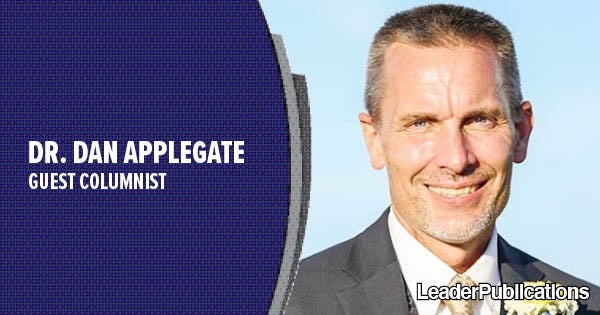Michael Caldwell: Super Bowl about more than just sports
Published 8:56 am Thursday, February 6, 2014
For at least two decades now, the “big game” has been about far more than what happens on the football field. The Super Bowl has become as much spectacle and cultural phenomenon as it is a sporting event.
Sunday’s game offered compelling proof of that. The lopsided contest — the Seattle Seahawks’ 43-8 thrashing of the Denver Broncos — was all but over by halftime, yet still managed to become the most viewed event in U.S. history with nearly 112 million people glued to their televisions.
Although this isn’t my point, I’d be remiss in my role as a newspaper guy if I didn’t point out that, according to Scarborough Research, this record-setting broadcast still falls way short of the 156 million adults who either read a printed newspaper or visited a newspaper website within the past week alone.
Just wanted to throw that out there.
Now, back to my point. Everyone has his or her own reasons for tuning in to the Super Bowl.
For fans of the teams playing and die-hard gridiron gurus, it truly is about the game. For others it is the communal experience of watching with friends and family. Some people just want to check out the halftime entertainment.
And, of course, millions of Americans turn on to see the commercials during what has become the “go to” platform for revealing big marketing campaigns and clever advertisements.
Many pundits and viewers who took to cyberspace to express their views felt this year’s crop of ads was as disappointing as the game itself, but I’m not sure I would agree with that assessment.
Several very interesting commercials did exactly what they are supposed to do: Get people talking.
Radio Shack’s ode to 1980s pop culture was entertaining to people like me who grew up in that era. Some ads, like Budweiser’s “Puppy Love,” pulled at the heartstrings for many viewers. Others like Coca-Cola’s ad that featured “America the Beautiful” sung in different languages sparked controversy and debate — which most marketing experts agree is still a very successful outcome when it comes to branding and exposure.
For me, the most interesting was Chrysler’s commercial that featured Bob Dylan talking about what makes America great. This likely hit home with Michigan viewers as it was primarily about Detroit.
Dylan, the legendary singer-songwriter, provided the voice over for a variety of images representing our country’s culture and workforce.
“You can search the world over for the finer things but you won’t find a match for the American road and the creatures that live on it,” he said, going on to add that, “When it is made here, it is made with the one thing you can’t import from anywhere else: American pride.”
Although the ad was maybe a little sanctimonious and felt somewhat contrived because Dylan seems to be an unlikely pitch man, it centered around a powerful and important message about pride. It is a vital component and part of the foundation of our great country.
Locally, and across the country, the strong sense of community pride and civic spirit has somewhat waned in recent years, likely a combination of the erosion of family values and the struggling economy.
Now, that is starting to change. Individuals who truly care about their communities — from small towns in southwest Michigan and Northern Indiana to the metropolitan centers like New York and Los Angeles — are leading this resurgence.
Taking a minute to celebrate the spirit our country was built upon is important. Nothing is wrong with doing so during the biggest event of a uniquely American sport.
Hopefully, though, we can have the conversation about all the characteristics that make our country great more than once a year.
Michael Caldwell is the publisher of Leader Publications LLC. He can be reached at (269) 687-7700 or by email at mike.caldwell@leaderpub.com.






